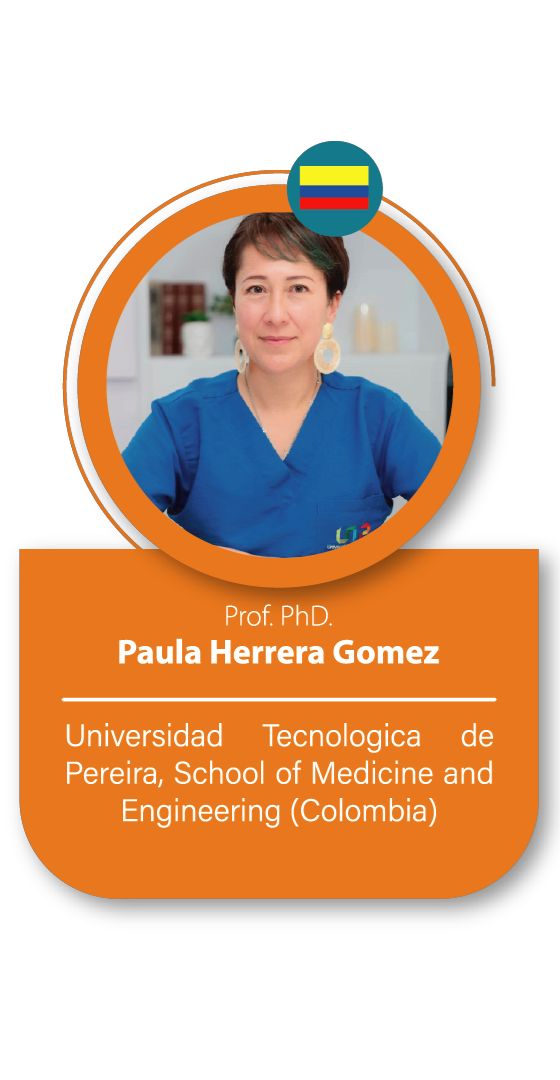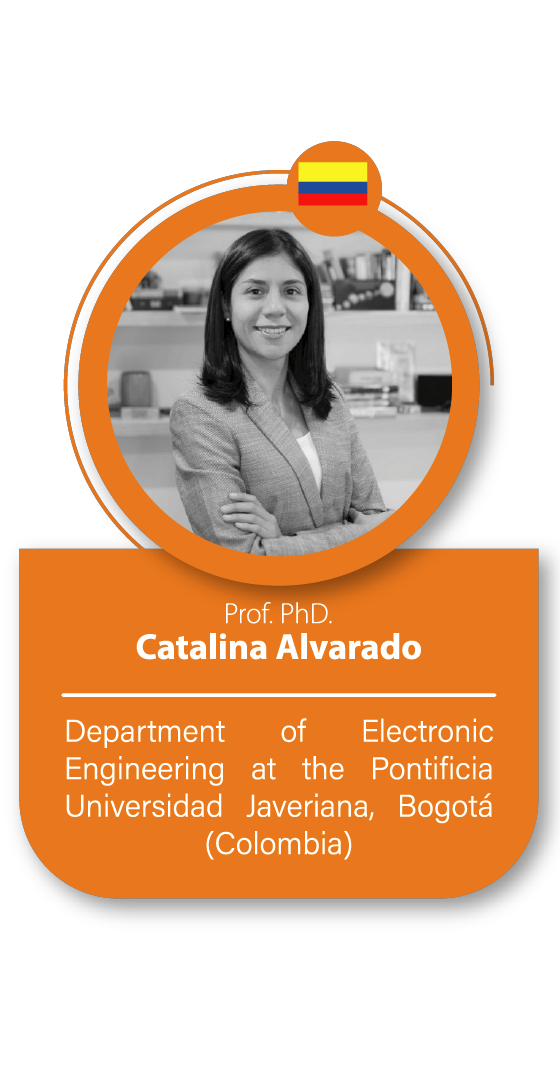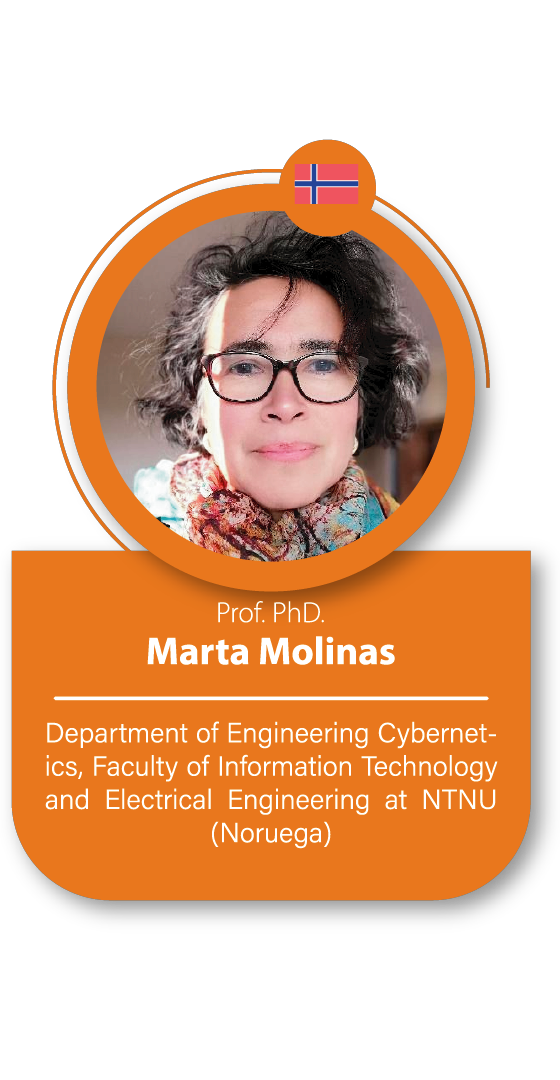
Lina Vanessa Becerra, physician, teacher, and researcher in the area of Basic Neurosciences in Higher Education, based in Cali (Colombia), with an interest in scientific dissemination and service to the community, human development, the arts, sustainability, and diversity. Her degrees in Medicine and Surgery, Master's, and Doctorate in Biomedical Sciences are from the Universidad del Valle, and her teaching work has been carried out since 2008 at the same university and later also at the Pontificia Universidad Javeriana de Cali. She is attached to the research groups Center for Brain Studies (Univalle - A Minciencias) and Research Group in Basic Sciences and Health Clinics (PUJ Cali - A1 Minciencias). Her fields of knowledge and her undergraduate and graduate chairs include functional neuroanatomy, neurochemistry, cell biology of the nervous system, neurophysiology, neurohistology, neurodevelopment, as well as the cytoarchitectural organization of the cerebral cortex, its cellularity, microcircuits, and connectivity. ; all topics applied to the investigation of it in typicality and in prevalent clinical entities such as head trauma, cerebral ischemia, autism, and epilepsy.

Yadira Ibargüen-Vargas is an Associate Professor in Neuroscience and Physiotherapy at the University of Orleans (France) and member of the CIAMS laboratory at University of Paris-Saclay (France). Physiotherapist from Fundacion Universitaria Maria Cano (Medellin, Colombia, 1999), she then obtained a M.Sc in physiology (2004) and a PhD in Neuroscience (2008) of the University of Tours (France). She joined the Kavli Institute for Systems Neuroscience as a postdoctoral fellow (NTNU, St-Olav Hospital, Trondheim, Norway, 2010-2013), developing new research projects while broadening her skills in molecular biology and electrophysiology. She then joined the Hospital of Tours (France) as a research associate (2015-2016) before joining the Physiotherapy University School of the University of Orleans in 2017, first as a lecturer (2017-2022) and then as an Associate Professor from 2022. Her research career has focused mainly on elucidating the pathophysiological and neurobiological mechanisms underlying stress-related disorders (e.g. anxiety, depression) and their treatments, integrating different levels of analysis (molecular, cellular, systemic and behavioural) and approaches (preclinical, translational and clinical). Her research has contributed to characterize the functional involvement of neuroplasticity markers such as adult neurogenesis and neurotrophic factors (BDNF) in normal and pathological stress response and therapeutic effects. She has extended her research area with her current projects where she aims, using translational approaches, to evaluate the benefits of physical activity and the inclusion of physiotherapy in the care pathway of patients with anxiety-depressive disorders or under stressful conditions.

Paula Herrara Gomez, medical doctor degree from Universidad Tecnológica de Pereira (2001), General Psychiatry (2010) and Child Psychiatrist (2012) from Paris University 7 and 5, master’s degree in Neuropsychology for research (Grenoble, France, 2012), Ph.D. in Neuroscience (Versailles, France, 2015). Leader of the research group "Psychiatry, Neuroscience and Community (PSINECO)", attached to Universidad Tecnologica de Pereira.

Catalina Alvarado, associate Professor of the Department of Electronic Engineering and Director of the master’s degree in Bioengineering at the Pontificia Universidad Javeriana, Bogotá. Ph.D. in Neurosciences from the Pierre and Marie Curie University, France. My main research interest consists in developing technological tools to support the diagnosis and treatment of neurological diseases. My areas of work are biomedical signal processing, machine learning, and biomedical instrumentation. I have applied the tools of these areas to the analysis of electroencephalography, electromyography, neuroimaging, and MOCAP signals in neurological diseases (epilepsy, Parkinson's, stroke, among others), as well as in the development of human-machine interfaces, which provide innovative technological solutions in the area of neurosciences, neurology, and neurorehabilitation.

TBA
Marta Molinas (Senior Member, IEEE) received the Diploma degree in electromechanical engineering from the National University of Asuncion, Asuncion, Paraguay, in 1992, the M.E. degree from Ryukyu University, Nishihara, Japan, in 1997, and the D.Eng. degree from the Tokyo Institute of Technology, Tokyo, Japan, in 2000. She was a Guest Researcher with the University of Padua, Padova, Italy, in 1998. From 2004 to 2007, she was a Post-Doctoral Researcher with the Norwegian University of Science and Technology (NTNU), Trondheim, Norway, where she was a Professor with the Department of Electric Power Engineering, from 2008 to 2014. She is currently a Professor with the Department of Engineering Cybernetics, NTNU. Starting in 2015 and after 12 years of working on the stability of power electronics systems, she has gradually expanded her research area into non-linear and non-stationary signal analysis, from the domain of harmonics in power systems into the domain of biological systems, specifically EEG signals. For that purpose, her group is now developing computational models of the human brain for solving the EEG inverse problem and generic platforms for non-linear and non-stationary signals analysis suitable for both physical and biological systems (electrical grids, EEG signals). Molinas is an Editor of the IEEE Journal of Emerging and Selected Topics in Power Electronics, Associate Editor of the IEEE Transactions on Power Electronics, and an Editor of the IEEE Transactions on Energy Conversion. She has been an AdCom Member of the IEEE Power Electronics Society from 2009 to 2011.